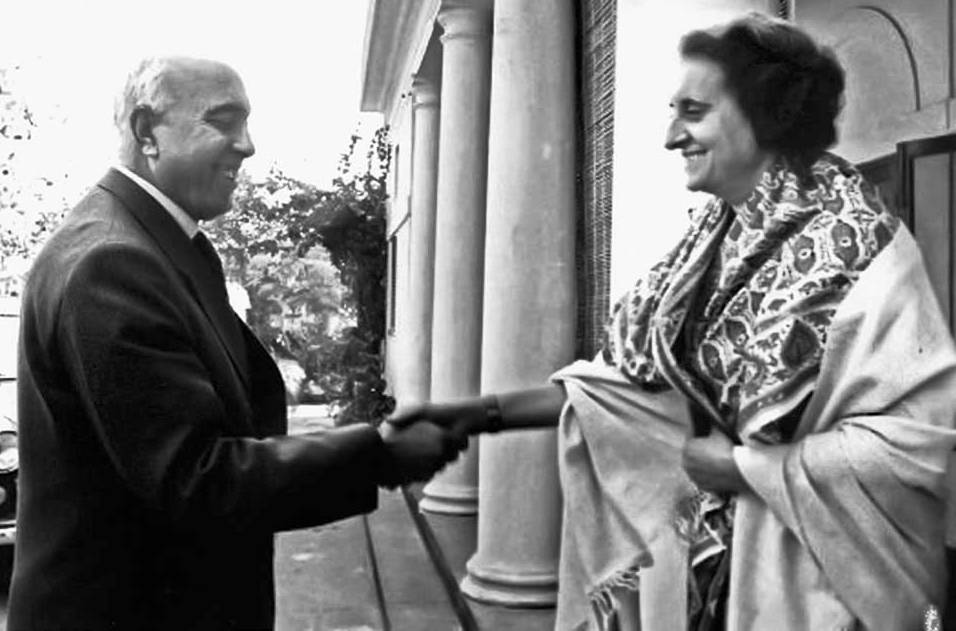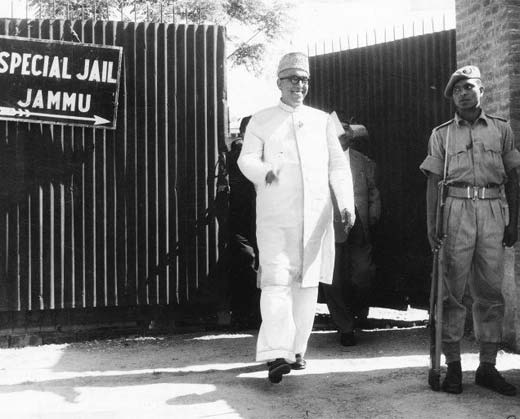After G Parthasarthy and Mirza Afzal Beg signed the accord for their political masters on February 24, 1975, the then Prime Minister Mrs Indira Gandhi gave a detailed statement in the Lok Sabha. The agreement that paved a way for Sheikh Abdullah’s return to power – after he had been disposed in 1953 – was hugely commented and had long term consequences. In this diplomatic cable that the US State Department has declassified, a diplomat is analysing the agreement to his foreign office bosses in Washington. The analysis is based on the accord and Mrs Gandhi’s speech.

- Mrs Gandhi read to parliament on February 24 a statement which we are transmitting by septel to selected addressees. We are also transmitting by septel the “agreed conclusions” reached by Mirza Afzal Beg and G Partharsarathy during their negotiations over the constitutional questions and letters exchanged between Mrs Gandhi and Abdullah, all of which she laid on the table of the house.
- Unchanged Constitutional status: Mrs Gandhi emphasized that there will be “no weakening of the ties” between India and the state. The federal government retains jurisdiction over “activities directed toward questioning or disrupting the sovereignty and territorial integrity of India, or bringing about cession or secession of any part of the territory of India”. The state constitution will be amended to require the assent of the president of India to change the powers of the governor or change its provisions regarding elections. (This mirrors Article 368 of the federal constitution which requires state government assent before constitutional amendments are extended to Kashmir.)
The federal government will consider “sympathetically” state government requests for changes in laws extended to the state after 1953 and falling under the /concurrent list” (social welfare, culture, social security, etc.).
- Article 370: Mrs Gandhi made clear in her statement and in the answer to a question from Jana Sangh leader Vajpayee that the government of India will retain Article 370 of the constitution, which requires state government assent for extension of federal laws to the state. Her statement said, “… the extension of further provisions of the constitution to the state will continue to be governed by the procedure prescribed in Article 370.” When Vajpayee noted that Article 370 was a “temporary and transitional provision” of the constitution, she replied that Article 370 could not be removed without the concurrence of the state legislature. The state did not request this when it prepared its own constitution and, as a consequential, Article 370 became permanent in 1956.
- Where Sheikh Abdullah gave in, Mrs Gandhi explained that Mirza Afzal Beg, negotiating for Sheikh Abdullah, requested curtailment of the federal Supreme Court in Kashmir. The GoI could not agree, although it did agree that the state High Court alone will issue certificates of approval for an appeal to the federal Supreme Court. (The Supreme Court will relinquish the right which it has in other states to approve an appeal disallowed by the state high court.) Beg also wanted transfer of India’s equivalent of the bill of rights to the state constitution, removal of control of the Federal Election Commission, and concurrence of the state government in an extension of “president’s rule,” or emergency federal control. Mrs Gandhi said, “It was not found possible to agree to any of these proposals. I must say to the credit of Sheikh Abdullah that despite his strong views on these issues, he has accepted the agreed conclusions.”
- Praise of Sheikh Abdullah: Mrs Gandhi began her statement by saying,” … Sheikh Abdullah had played a notable part in the freedom struggle and in the accession of the state of Jammu and Kashmir to the Indian Union ….despite the differences which led to the subsequent estrangement it seemed clear from the public statements made by Sheikh Abdullah as well as personal talks with him that his commitment to basic national ideals and objectives had remained unchanged.”
She, therefore, treated the events of 1953, which led to the ouster of Sheikh Abdullah from the Kashmir government, as an aberration.

- The one unresolved issue: As we noted in the reftel, Sheikh Abdullah still hasn’t gotten the title “wazir-e-azam,” which would appear to be important for him if he is to claim to his supporters in the Kashmir valley that he has achieved something in his negotiations. Mrs Gandhi implied, however, that he will get this. She said that it requires amendment of the state constitution by the state legislature. The Chief Minister (i.e., the sheikh) won’t object, and this is not one of the subjects requiring presidential approval.
- Opposition reaction: Hindu nationalist Jana Sanghleader Vajpayee termed the agreement a sell-out, and his party has already called for protests in Jammu the day the Sheikh assumes power, February 25. A socialist member asked about the Sheikh›s reported support for a federation of India, Bangladesh and Pakistan and his meeting with J P Narayan. Mrs Gandhi replied to the effect that she only had press reports of what he said and, in any case, she would follow his comments closely only once he became Chief Minister. (In fact, his comment about a possible federation appeared from the press reports to have been a mild response to a very leading question.) There will be further debate after parliament studies the texts of the documents.















